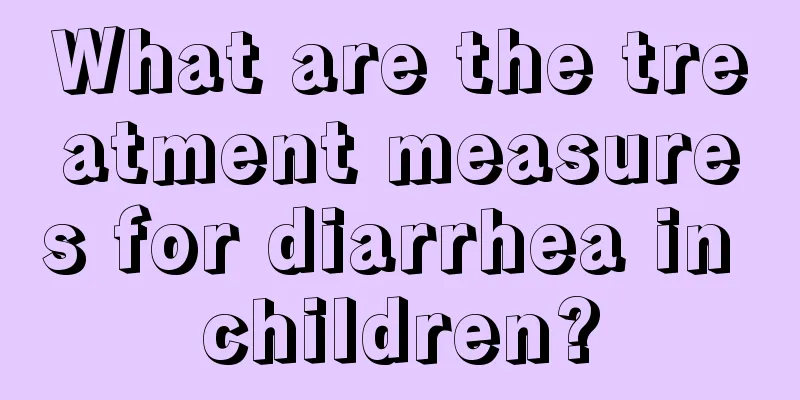Why is the baby's stool green?

|
We all know that the baby's digestion condition can be best reflected through the baby's stool. Once there is a digestive problem, it will have a great impact on the baby's absorption of nutrients. Therefore, many parents often observe the baby's health conditions through the stool. Generally, when the baby is about five months old, the stool begins to have a certain regularity. Often during this period, parents will always find that the baby has green stools. Parents who lack experience will often be particularly anxious and don't know what the reason is. Let's understand why the baby's stool is green at five months old. Why is the baby's stool green? Newborn meconium (dark green) (1) Even if a newborn baby has not eaten anything, he or she will pass dark green meconium 6 to 12 hours after birth. (2) I don’t know whether the babies are considerate of their mothers or they don’t want to contaminate the amniotic fluid that they swallow every day, but the babies must come out of their mother’s belly before they are willing to have their first bowel movement. Meconium that has accumulated for 9 months must be cleared out through frequent bowel movements, which usually takes 2 to 3 days, 3 to 5 times a day, for the dark green color to disappear. (3) Meconium is usually odorless, viscous, and dark green in color. It is mainly composed of amniotic fluid swallowed by the baby in the womb, epithelial cells shed by the fetus, vellus hair, sebum, bile, intestinal secretions, etc. These innate things are difficult to wash off, and experienced elders will tell the children's parents that they must use diapers instead of cloth diapers in the first few days. (4) Experts remind us that this is not a bad thing: the time for premature babies to pass meconium is sometimes delayed. This is mainly related to the poor intestinal motility of premature babies or delayed feeding of the children. Transitional stool (yellow-green) (1) During the days when meconium is excreted, breastfeeding should also begin. When the meconium is completely excreted and the stool transitions to normal stool, it will be yellow-green in color. Most newborns' stools will show this stage after 2 to 3 days of breastfeeding, and then gradually enter the normal yellow stage (breastfed babies). (2) Experts remind us that this is not a bad "stool": the time when newborns start feeding and the amount of milk they consume will directly affect the appearance and duration of transitional stools. If the start of breastfeeding is delayed or the amount of milk consumed is too little, the transition period will also be delayed. Stool during lactation (1) Breastfed babies (soft golden stools) A. Breast milk is rich in oligosaccharides, which can fully stimulate gastrointestinal motility. Therefore, most babies will not have hard stools and no obvious odor. The stools are golden yellow, occasionally slightly green and relatively thin; or they are ointment-like, uniform, sour and without foam. The frequency of bowel movements of breastfed babies is very flexible. Usually, the frequency is higher in the neonatal period, 2 to 5 times a day. As the child grows older, the frequency of bowel movements will gradually decrease. For children aged 2 to 3 months, the frequency of bowel movements will be reduced to 1 to 2 times a day. Therefore, if a breastfed baby has loose stools or has more frequent bowel movements, it is normal as long as the baby is in good spirits and feeding, has normal weight gain, and does not have difficulty defecating, abdominal pain, or bloating, and parents do not need to worry. B. Experts remind that this is not a bad "poop": Breastfed newborns may even defecate 7 to 8 times a day. Parents do not need to worry. This is called physiological diarrhea, which is a normal phenomenon. When the baby grows to a certain age, this diarrhea will disappear automatically. (2) Artificially fed babies (khaki-colored hard stools) A. Babies fed with formula have less stool, which is usually drier, rougher, and a little harder like paste. But as long as it is not difficult to pass and does not resemble sheep feces, it is fine. If there is no problem with digestion, it will usually be earthy yellow or golden yellow with a slightly sour smell, about 1 to 2 times a day. B. Experts remind that this is not a bad "stool": Babies who drink formula milk sometimes have yellow stools with green or cyan. This is because the iron content in formula milk is very high. When the baby does not fully absorb the iron in the milk powder, the excess iron will make the stool green. This is normal. It is not true what the older generation says that children’s stools are green. It is gastrointestinal discomfort caused by being frightened. The above is an introduction to why baby's stool is green. After understanding it, we know that the baby's stool is green is generally caused by indigestion. Therefore, when feeding, parents must also pay attention to the correct method. In addition, at five months, the baby can eat some complementary food appropriately, but do not feed too much at one time. If this situation has not improved for a long time, you must consult a doctor in time. |
<<: Why is my five-month-old baby's stool green?
>>: Why does the baby cry in the middle of the night?
Recommend
Why does my baby not like to sleep at night?
Babies don’t like to sleep at night and often cry...
How to deal with a two-year-old baby's low-grade fever
Children's physical conditions are rather spe...
How to treat viral myocarditis in children
Viral myocarditis in children is relatively commo...
Baby hearing development time
The baby's physical development, including th...
What are some ways to improve children's memory?
I believe that we will all find such a problem in...
How to make baby meat pie
Since the digestive ability of the baby's sto...
What’s wrong with my 3 month old baby drooling?
When the baby is 3 months old, he will drool ever...
Baby's scalp eczema scabs?
The baby's skin is relatively delicate, and a...
Why do children like to blink?
It's a good thing for some children to be liv...
What to do if your child has red and swollen eyes
Sometimes children have red and swollen eyes, whi...
What should I do if my child has a birthmark on his face?
In short, birthmarks are the marks that babies br...
What are the symptoms of anemia in children?
I don’t know if you have ever suffered from anemi...
What are the medicines for clearing heat and purging fire in children?
I believe that everyone has some common household...
What to do if the inside of baby's lips are red
What should I do if the inside of my baby's l...
Why do babies not cry when they are born?
Usually in TV dramas, when a woman is giving birt...









